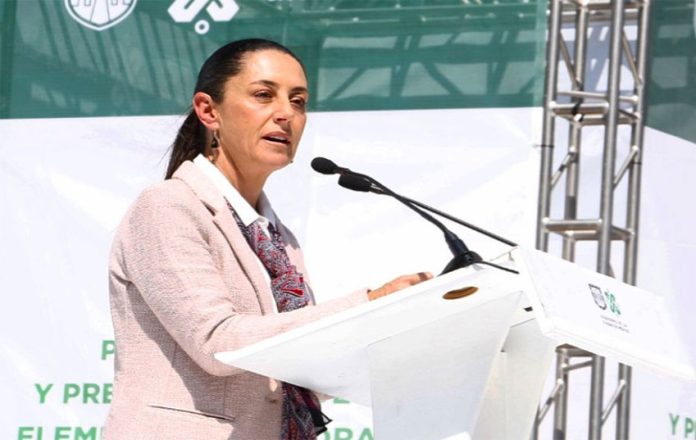A government program in Mexico City will seek to get 3,000 young people off the streets and lead them away from a life of crime, Mayor Claudia Sheinbaum said on Friday.
The mayor said that the Jóvenes unen al barrio (Young people join the neighborhood) program will offer educational scholarships to youth identified as being prone to crime and provide them with opportunities to participate in social and environmental schemes such as the Reto Verde (Green Challenge), a tree-planting initiative.
About 3,000 young people are expected to join the Youth Institute program this year, Sheinbaum said.
The program is part of a wider anti-crime initiative called Alto al Fuego (Ceasefire), which has already begun in the borough of Álvaro Obregón and will be extended across Mexico City this year.
The initiative consists of identifying people involved in criminal activity through intelligence work and then sending them messages that warn them that there will be zero tolerance for any high-impact crimes they commit.
The strategy doesn’t seek to negotiate with criminals or enter into agreements with them, said security undersecretary Pablo Vázquez, but rather “send them a clear message” that their crimes will be punished with “the full weight of the law.”
The Alto al Fuego initiative is directed at the 1% of the population that is directly involved in violent crime or has links to a criminal group, he said.
“It’s not a conversation, at no time do [the identified criminals] have a voice, it’s one-sided communication,” Vázquez said.
“. . . Alto al Fuego is a strategy . . . known as focused deterrence . . .It’s a strategy that has been implemented in U.S. cities such as Boston, with the so-called Operation Ceasefire in 1996, and in Oakland, California, a city which . . . has similar characteristics as the Mexican capital,” he said.
“We’re not seeking dialogue or negotiation, we’re trying to communicate in a direct way . . . ”
With the implementation of the strategy, the government is aiming to reduce murders and other violent crime in Mexico City, where there were 2,021 homicides and 60 femicides in the first 11 months of last year.
Source: El Universal (sp)
